Graham Reid | | 2 min read
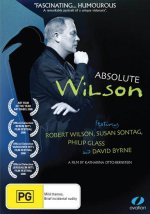
Choreographer Robert Wilson is one of those rare individuals who can dress a stage to look like a private dream inspired by the stillness of a Rene Magritte paiting or a mad cabaret populated by frogs and floating chairs.
Either way, at a glance you can spot a Wilson design. They are idiosyncratic, unique, often visionary, sometimes disturbing and always compelling. Frequently they are monumental in size and his productions can be epic -- 12 hours anyone? What about a non-stop play which runs for a week? -- in their conception.
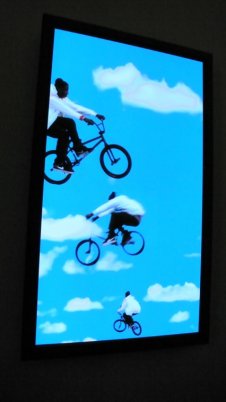 Little wonder then that his grand conceit for the Los Angeles Summer Olympics in '84 stumbled at the final hurdle: a mere $US1.2 million short meant the opera Civil warS (created in six countries and to be assembled in LA, with music by Philip Glass, David Byrne, Gavin Bryars and others) wasn't presented . . . although some of the spearet sections later were performed in various countries.
Little wonder then that his grand conceit for the Los Angeles Summer Olympics in '84 stumbled at the final hurdle: a mere $US1.2 million short meant the opera Civil warS (created in six countries and to be assembled in LA, with music by Philip Glass, David Byrne, Gavin Bryars and others) wasn't presented . . . although some of the spearet sections later were performed in various countries.
Still, Wilson had enjoyed a remarkable run up to that point for a kid who grew up as shy, stuttering boy in Waco, Texas in a family which seemed emotionally remote. In this 100 minute biographical doco, images from his later theatre pieces vividly illustrate how much that life affected him.
Growing up gay wasn't easy either, but the various facets of his personality gave him a rare empathy and his story is punctuated with how he adopted a deaf boy and found a place in his heart and theatre pieces for a young man with severe emotional and intelectual disabilities (but also something of an idiot savant it would seem).
Wilson also inspired ferocious loyalty and dedication from those who came to work witth him in his theatre company.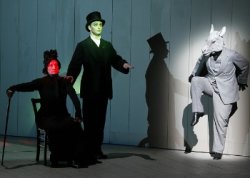
Admired by the likes of Glass, Tom Waits and William Burroughs who collaborated with him, and of course the theatre world which saw him bringing in audiences when others couldn't, Wilson also comes off as an engaging genius whose single-mindedness is forgivable given the often spectacular results he achieves.
This doco not only traces Wilson's inner an outer lives but peppers in (rather too few unfortunately) sequences from his productions, takes us inside his workshops and home . . . but only fleetingly lets us see him when he snaps out of frustration: you get the sense there might have beeen quite a bit of footage of those moments available but unused.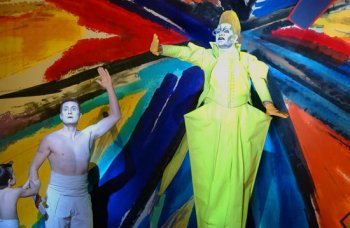
Robert Wilson invigorated the New York stage at a time when it desperately needed it. His operas were ambitious, mysterious and often a little bewildering but they provided an enormous amount of eye-candy as well which frequently ensured their success.
Wilson is a rare one in that he also -- in the interview footage at least -- is prepared to laugh at his own shortcomings while stil remaining inspired.
At the end he notes that often he/we wonder what we should do next, what might be the right thing to do.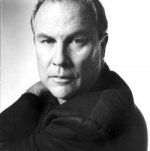
But often it is the wrong thing that we should do.
Robert Wilson has the ability to make the strange seem normal within the theatre, and the wrong seem right.
This doco makes an excellent companion piece to the DVD Glass: A Portrait of Philip in 12 Parts, see here.

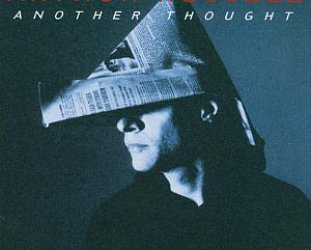


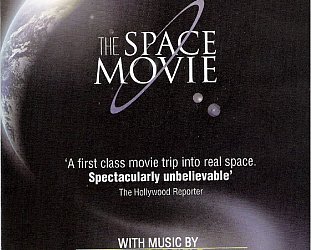
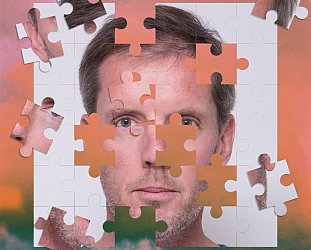
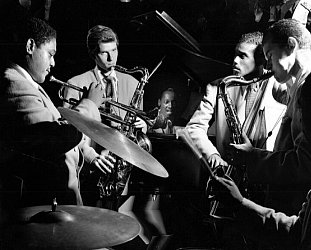
post a comment